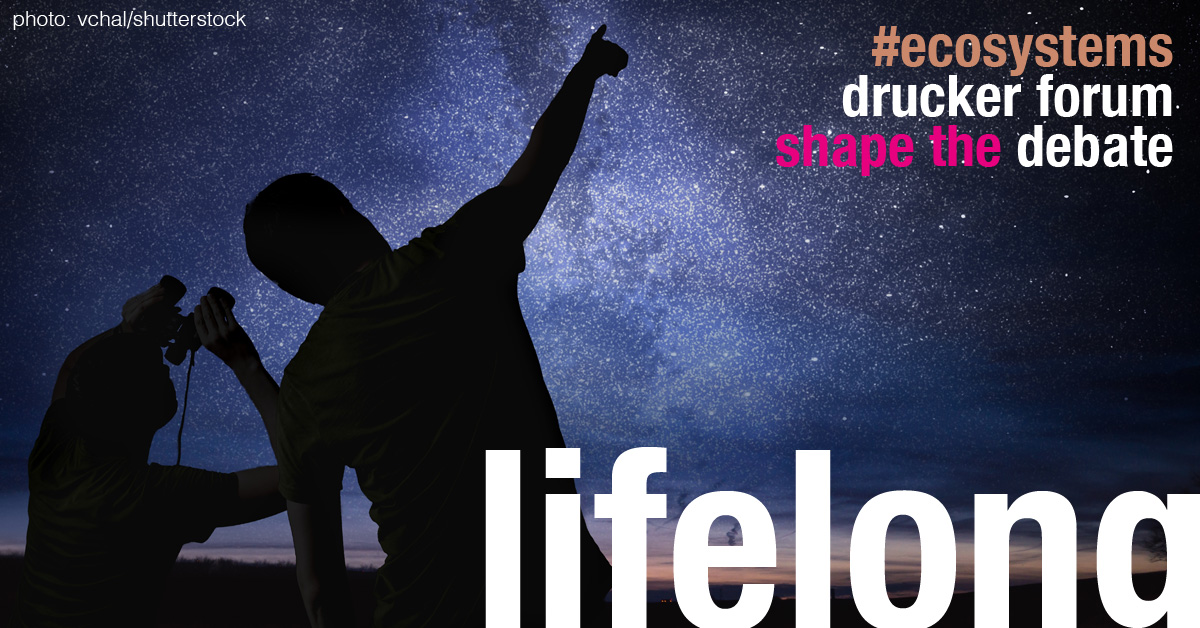
“Lifelong learning.” A word cluster that comes up with over 99 million results when searched in Google. It is a popular concept with its central tenet being that we must always be learning in order to adapt to new opportunities or threats and to continue to make way for innovation and connections between ideas and people – past, present, future. It is said that effective leaders have the quality to question, and learn from, people and ideas inside and outside their industry. Leading organizations need to be able to “see around corners”, and lifelong learning helps us to do this by pulling in knowledge from different disciplines and dimensions.
While few of us are likely to disagree with this concept, perhaps we wonder how lifelong learning plays out in reality. How can we tie together seemingly disparate ideas when there is so much else “going on”? How do we instill this in future generations?
Drucker Forum 2019
I work in the international education industry – a world that is dominated by diversity in all its forms and where there are similar conversations taking place: namely, how do we work across different languages and curriculums, management and teaching styles, inward-looking and outward-looking metrics, diversity of thought and richness of opinions while preparing our young people for the future of work? If we are to be continuously learning, we must see ourselves – and our students – as part of a learning ecosystem.
Rita Gunther McGrath recently wrote about business ecosystems and the need to question our strategy assumptions – citing that highly successful organizations are adept at leveraging networks to their advantage and going beyond the traditional barriers to entry. Learning (and education in general) can pave the way for this by connecting different disciplines in a practical way, moving beyond silos or niches to create broad brush strokes that join education, associations, networks, and accreditation agencies in a beautiful tapestry. We must cultivate learning and learners; we must strive to prove the value of diversity of thought and of making unexpected connections between things.
In the words of Peter Drucker: “We now accept the fact that learning is a lifelong process of keeping abreast of change. And the most pressing task is to teach people how to learn.” Creating the environment for learning and leveraging the power of ecosystems for lifelong learning must become an integral part of organizations of the future – and schools are one place to start.
About the Author:
Esther Clark writes for Forbes and America Economia magazines and explores concepts related to human centered management, management thinking, and strategy. She is currently Director of Marketing and Communications at TASIS The American School in England.
This article is one in the Drucker Forum “shape the debate” series relating to the 11th Global Peter Drucker Forum, under the theme “The Power of Ecosystems”, taking place on November 21-22, 2019 in Vienna, Austria #GPDF19 #ecosystems

